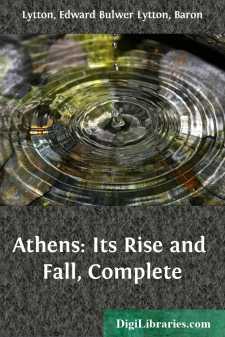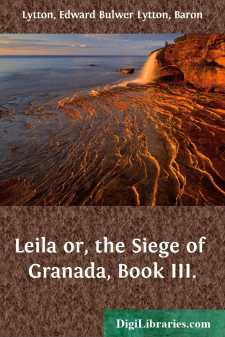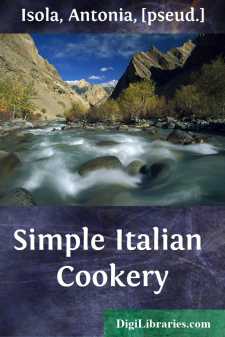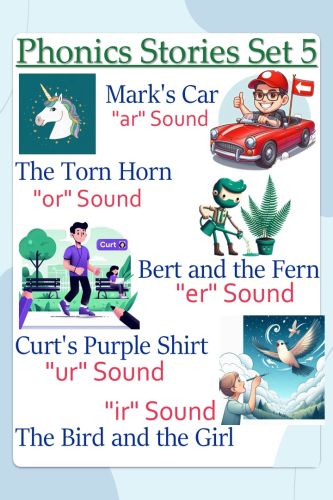Categories
- Antiques & Collectibles 13
- Architecture 36
- Art 48
- Bibles 22
- Biography & Autobiography 813
- Body, Mind & Spirit 142
- Business & Economics 28
- Children's Books 17
- Children's Fiction 14
- Computers 4
- Cooking 94
- Crafts & Hobbies 4
- Drama 346
- Education 46
- Family & Relationships 57
- Fiction 11829
- Games 19
- Gardening 17
- Health & Fitness 34
- History 1377
- House & Home 1
- Humor 147
- Juvenile Fiction 1873
- Juvenile Nonfiction 202
- Language Arts & Disciplines 88
- Law 16
- Literary Collections 686
- Literary Criticism 179
- Mathematics 13
- Medical 41
- Music 40
- Nature 179
- Non-Classifiable 1768
- Performing Arts 7
- Periodicals 1453
- Philosophy 64
- Photography 2
- Poetry 896
- Political Science 203
- Psychology 42
- Reference 154
- Religion 513
- Science 126
- Self-Help 84
- Social Science 81
- Sports & Recreation 34
- Study Aids 3
- Technology & Engineering 59
- Transportation 23
- Travel 463
- True Crime 29
Athens: Its Rise and Fall, Complete
Description:
Excerpt
CHAPTER I.
Situation and Soil of Attica.—The Pelasgians its earliest Inhabitants.—Their Race and Language akin to the Grecian.—Their varying Civilization and Architectural Remains.—Cecrops.—Were the earliest Civilizers of Greece foreigners or Greeks?—The Foundation of Athens.—The Improvements attributed to Cecrops.—The Religion of the Greeks cannot be reduced to a simple System.—Its Influence upon their Character and Morals, Arts and Poetry.—The Origin of Slavery and Aristocracy.
I. To vindicate the memory of the Athenian people, without disguising the errors of Athenian institutions;—and, in narrating alike the triumphs and the reverses—the grandeur and the decay—of the most eminent of ancient states, to record the causes of her imperishable influence on mankind, not alone in political change or the fortunes of fluctuating war, but in the arts, the letters, and the social habits, which are equal elements in the history of a people;—this is the object that I set before me;—not unreconciled to the toil of years, if, serving to divest of some party errors, and to diffuse through a wider circle such knowledge as is yet bequeathed to us of a time and land, fertile in august examples and in solemn warnings—consecrated by undying names and memorable deeds.
II. In that part of earth termed by the Greeks Hellas, and by the Romans Graecia , a small tract of land known by the name of Attica, extends into the Aegaean Sea—the southeast peninsula of Greece. In its greatest length it is about sixty, in its greatest breadth about twenty-four, geographical miles. In shape it is a rude triangle,—on two sides flows the sea—on the third, the mountain range of Parnes and Cithaeron divides the Attic from the Boeotian territory. It is intersected by frequent but not lofty hills, and, compared with the rest of Greece, its soil, though propitious to the growth of the olive, is not fertile or abundant. In spite of painful and elaborate culture, the traces of which are yet visible, it never produced a sufficiency of corn to supply its population; and this, the comparative sterility of the land, may be ranked among the causes which conduced to the greatness of the people. The principal mountains of Attica are, the Cape of Sunium, Hymettus, renowned for its honey, and Pentelicus for its marble; the principal streams which water the valleys are the capricious and uncertain rivulets of Cephisus and Ilissus ,—streams breaking into lesser brooks, deliciously pure and clear. The air is serene—the climate healthful —the seasons temperate. Along the hills yet breathe the wild thyme, and the odorous plants which, everywhere prodigal in Greece, are more especially fragrant in that lucid sky;—and still the atmosphere colours with peculiar and various taints the marble of the existent temples and the face of the mountain landscapes.
III. I reject at once all attempt to penetrate an unfathomable obscurity for an idle object. I do not pause to inquire whether, after the destruction of Babel, Javan was the first settler in Attica, nor is it reserved for my labours to decide the solemn controversy whether Ogyges was the contemporary of Jacob or of Moses....






















